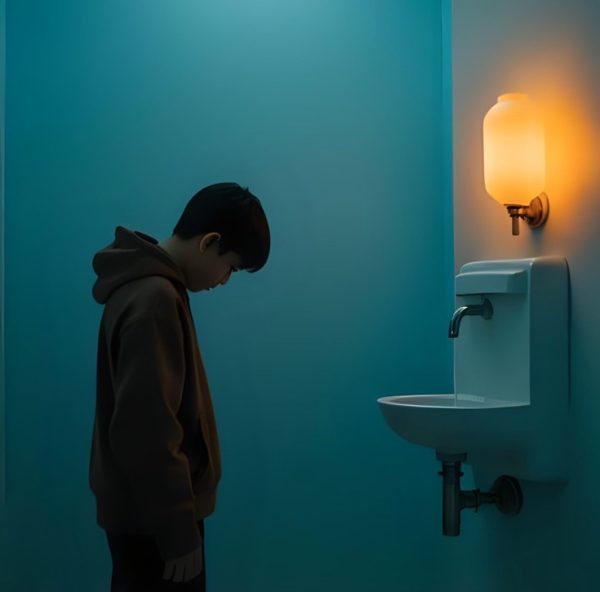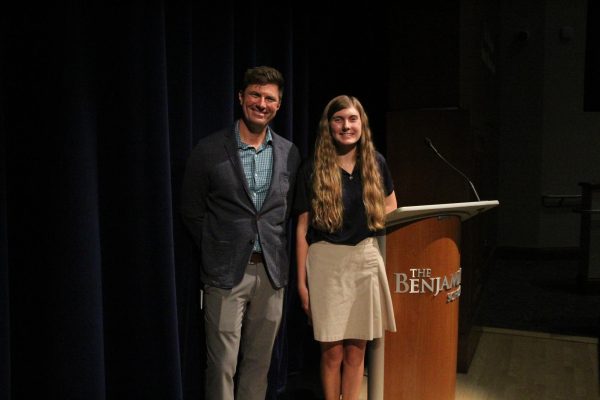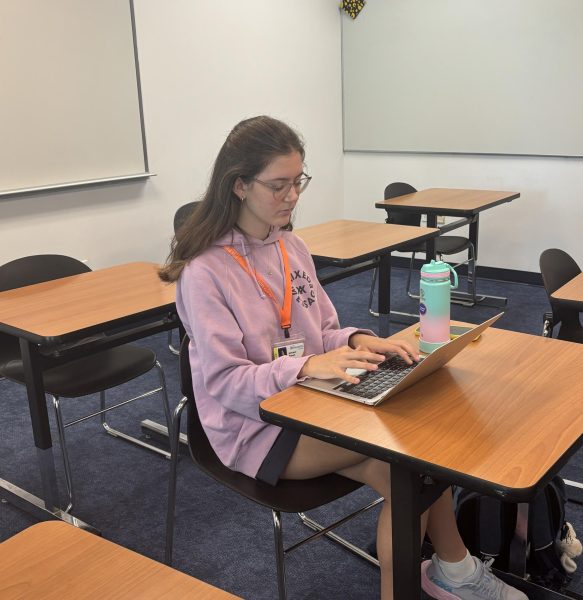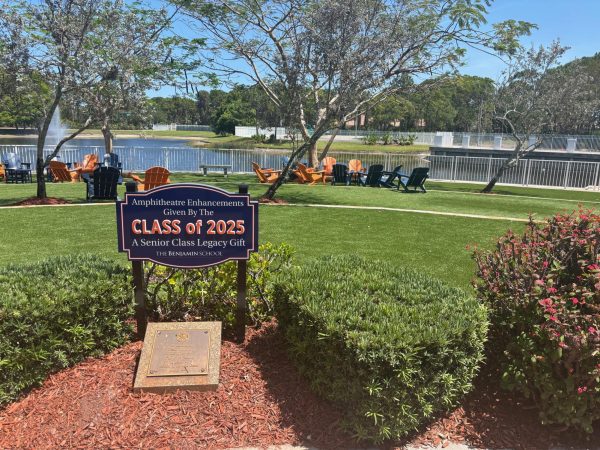The “Current” State of the Benjamin Brain: In the Know
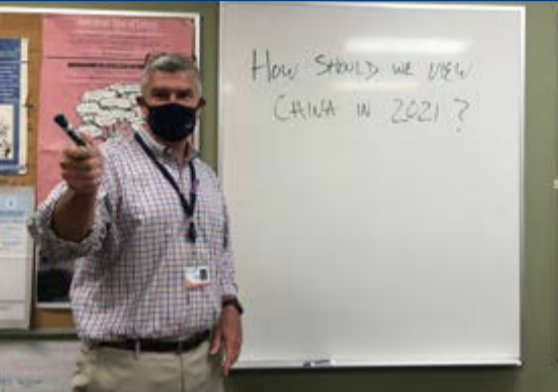
Every student should know about current events. After all, they are the world’s future, so they need to be knowledgeable about the happenings of the world. Unfortunately, many do not like to take the time to read about such. Do our students, Benjamin students, go beyond the bubble of ignorance?
Head of School Mr. Fletcher Carr believes that it is vitally important for students to be knowledgeable about global issues. “Certainly, recent history has pointed out the need for young people who understand the
roots of issues as well as the notion of bias, a group that can decipher misinformation and ask questions that cut to the fundamental parts of an issue. Even more, students who understand current issues–and the roots of those issues–will also have the skill to deconstruct information and also reconstruct it in creative ways that may bring about solutions that the world
has not yet seen. The world needs adaptable, informed, and creative thinkers who can find the opportunities and silver linings in current crises and repurpose problems into solutions. We have incredibly intelligent students here at Benjamin, so why not set them on a path here that can, over the coming decades, improve upon our current state of affairs.”
According to a survey sent out by The Pharcyde, a divide exists between students, with many knowing about current affairs but also many who seem uneducated about the same.
The questions that a majority of students, who responded to the survey, answered correctly are “How many COVID-19 vaccines exist in the US”, “In which state did we just have a recall election”, “What was the topic of the new bill that passed in Texas”, “Who was the governor that resigned in New York and why”, “In which country did US have its longest war”, and “Which two neighboring Middle-Eastern countries have had conflict for several decades that has recently spiked”.
Respectively, 55.2%, 84.7%, 81.4%, 80.6 %, 72.9%, and 76.3% chose or wrote the right answers to those questions.
Unfortunately, there is a difference between “majority” and “most”. While more than half of the Benjamin students answered the questions above correctly, it is interesting to know why the other students answered them incorrectly.
There are multiple reasons as to why students would not know the right answers to such important questions. Young students are susceptible to false information because they are the prominent ones on social media, a large platform to misinformation. In conjunction with this idea, students might not know which sites are reli- able in order to obtain correct information. Secondly, disinterest is common among students. Sometimes, students do not feel it necessary to know about current issues. This can be the case due to multiple reasons: feeling as though they do not have a voice in the matters, they do not think they need to be educated about such happenings yet since they are “too young”, or simply because they do not care.
On the other hand, the questions that stumped students were “How much money has the US put into Afghanistan”, and “Who is the senator from West Virginia who has been popularized in the news”.
The purpose of Mr. Carr’s Current Issues class is to look at the crises and current happenings around the world. “We are covering these stories from as many perspectives as we can, using a great tool called allsides.com, a news aggregator that also uses a broad based advisory board and user feedback to provide information about the biases in a given news story. More than anything, however, I hope that the course will inform and challenge student assumptions, whatever side of the political spectrum they fall
on, about their current world views.We spend a good deal of time reading and analyzing opinion pieces in major publications. In response, students are writing their own opinion pieces on major questions within the issues we are covering (Afghanistan, COVID, China, global environmental concerns, US infrastructure, for example). The quality of the essays I have received thus far encourages me to think that the students in the class are understanding the issues and the underlying complexities of each at a high level.”
It is also interesting that Benjamin Upper School students have a breadth of knowledge across the broad topic of current affairs. The celebrity questions asked, in order to see about which topics students were more knowledgeable, were “Name one person at the Met Gala”, “Who is Megan Fox’s boyfriend”, and “Which celebrity faced financial issues with his/her father”. 82.5%, 66.7%, and 81.5% of students answered those questions correctly, respectively.
Students at Benjamin clearly hold a higher amount of understanding and knowledge about issues and events of this world, whether political or celebrital. But those who do not, for any of the reasons that have already been discussed, here is your motivation. To be right. If you know your stuff, you can use it to better yourself, better your mind, and better your chances at being right if you happen to get into an argument. I mean who doesn’t like to be right? After all, Frank Zappa, an American musician, once said, “I like to watch the news, because I don’t like people very much and when you watch the news … if you ever had an idea that people were really terrible, you could watch the news and know that you’re right.”
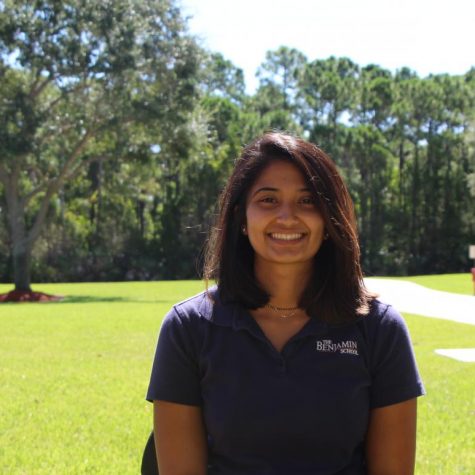
Tvisha Goel is a senior at The Benjamin School is the Co-Editor-in-Chief for The Pharcyde and has been a part of the staff for three years. She loves...


